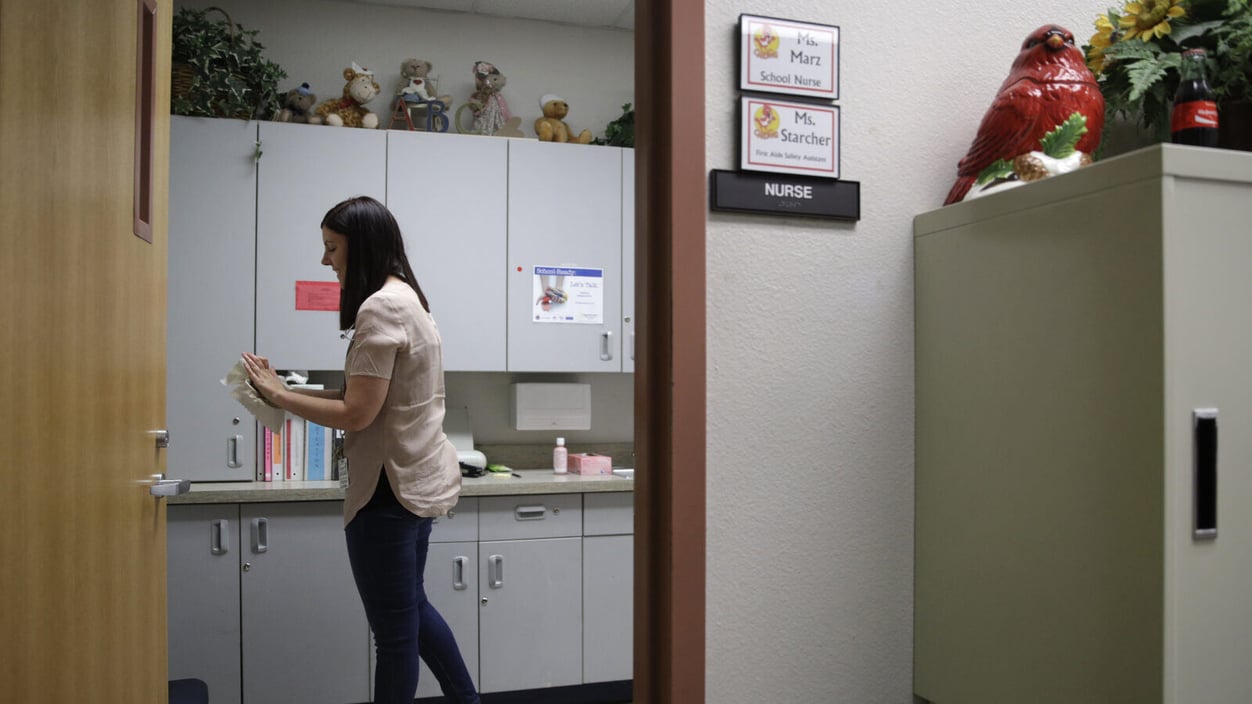first opinion
In praise of school nurses

John Locher/AP
Did you know that in the U.S., there are more security staff in high schools than there are full-time registered nurses? In a new First Opinion essay, RN Sherrie Page Guyer argues that the philosophy of what makes a campus safe must shift "from fear to facts."
Of course, school shootings are an intractable tragedy in American culture. But Guyer notes that medical emergencies requiring CPR or the administration of lifesaving medication are still far more likely to occur at high schools than a shooting. School nurses can also be the first adult that a student talks to when they need behavioral health support.
Read more in Guyer's essay on the benefits of arming every school with a nurse.
cardiovascular health
Salt substitutes as a way to lower risk of death, stroke
Scientists have long understood that using salt substitutes — which replace some of the sodium chloride with potassium chloride — can help lower one's blood pressure. A few years ago, for the first time, a randomized controlled trial of more than 20,000 people demonstrated a direct association between use of the substitutes and a lowered risk of stroke. Now, a subgroup analysis from that study, published yesterday in JAMA Cardiology, found that among people who have already had a stroke, using salt substitutes was associated with a significantly reduced risk of having another stroke, and of death.
The subgroup analysis followed more than 15,000 people with a history of stroke for an average of five years. In particular, those in the salt substitute group had a 30% relative reduction of hemorrhagic stroke and 21% relative reduction of stroke-related deaths compared to those who used regular salt. The results show that if scaled up, salt substitutes could be a simple and effective intervention around the world, the authors wrote.
cancer
Some good news re: a cancer vaccine
Nine patients with advanced kidney cancer who received an experimental vaccine tailored to their tumors' specific mutations mounted an immune response to their disease and have remained cancer-free for three years, an early-phase clinical trial has shown.
Cancer vaccines developed with different molecular recipes are still in their early stages, experts told STAT's Liz Cooney. The study demonstrates the potential of personalized vaccines to change the course of certain cancer types, but larger, longer trials are needed to confirm this approach. Read more on the science.


No comments